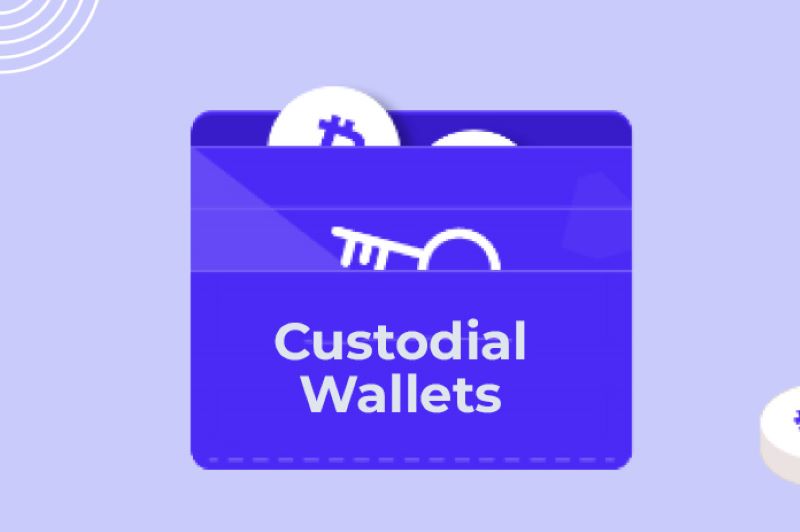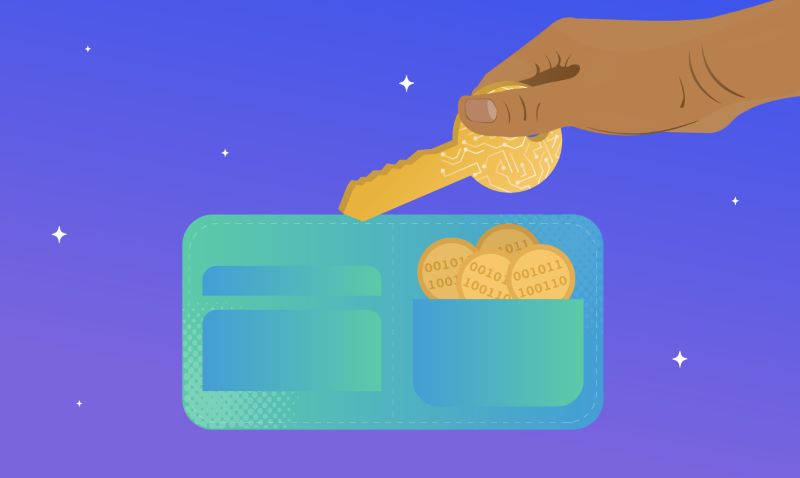Custodial Wallet Crypto: Is Your Investment Truly Secure?
You put your trust and money into a custodial wallet crypto, but is it safe? Each choice you make in the crypto world can shape your financial future. Security is not just a bonus; it’s the bedrock. As we dive into the realms of custodial wallets, let’s untangle the myths from the facts. Get the lowdown on what these wallets are and why their security should matter to you. With crypto theft on the rise, understanding the safekeeping of your digital assets is crucial. I’ll guide you through the intricate world of cryptocurrency storage, the fine line between convenience and control, and how to balance the two for peace of mind. Strap in and prepare to learn how to keep your digital gold under lock and key.
Understanding Custodial Wallets and Cryptocurrency Security
What Are Custodial Wallets?
Custodial wallets hold your crypto, but someone else has the keys. It’s like a bank for digital money. You trust them to keep your funds safe. These wallets are online or with companies. They help you trade and manage your crypto with ease.
Importance of Security in Crypto Storage
Keeping your crypto safe is top priority. Security in crypto storage matters a lot. Hackers are real threats. With good security, you worry less. Your crypto stays protected. Choose wisely where to store your coins. It’s all about peace of mind and safekeeping your digital wealth.
The Mechanics of Cryptocurrency Storage
Hot Wallet Custody vs. Cold Storage Custodial Services
When it comes to keeping crypto safe, you have choices. Think of hot wallet custody like a wallet in your pocket. It’s always with you, online and ready. It lets you trade or pay with crypto fast. But, just like real wallets, they can be risky. If someone hacks the system, your digital money could vanish.
Cold storage custodial services are different. They work like a safe. They keep crypto offline, away from thieves. Cold wallets are tougher to break into, which means better safety for your coins. But, they’re not as quick to use as hot wallets.
How Private Key Management Works in Custodial Wallets
In custodial wallets, a third party holds the keys to your crypto. They’re like a bank, but for digital money. They keep your private key, which is a secret code that locks up your crypto. If they didn’t, anyone could take your coins.
A private key is a big deal. Lose it, and your crypto could be gone for good. If someone else gets it, they could steal all your digital cash. That’s why trusted wallet service providers guard this key very well.
Custodial wallets, like ones from a crypto exchange, mean you don’t juggle keys. The wallet service tackles security, backups, and more. They promise to help if things go wrong, like if you forget your password. But trusting someone with your keys comes with risks. If they mess up, your crypto might be at risk.
In short, hot wallets are fast but less secure; cold wallets are safer but slower. And with any custodial wallet, the power over your crypto lies with whoever has that private key. Keep these facts in mind when choosing where to store your digital treasures.
Knowing how custodial wallets work is crucial. And choosing between hot custody or cold services depends on what you need more: speed or security. Remember, the right choice for you will help keep your digital gold safe and sound.
The Pros and Cons of Using Custodial Wallet Services
Advantages of Custodial Wallets Over Non-Custodial Options
Custodial wallet services make handling crypto simpler. If you’re new to crypto, they help a lot. You don’t have to worry about private keys—the service does. They look after your digital coins, so you can focus on learning and trading. Plus, if you forget your password, it’s not the end. The wallet provider can help you regain access. Many also offer insured crypto deposits. This means you’re covered if something goes wrong.
But, there’s more. Think about crypto exchange wallets. They are often custodial. This set-up lets you trade quickly. Moving coins between trading and wallet happens in a flash. Centralized crypto wallets like these are user-friendly. They’re designed for people, not tech wizards. This means it’s easy to get started with crypto holding for beginners.
Risks Associated with Third-Party Crypto Storage
Now, with the good comes the bad. Custodial wallets mean trust. You trust a third party to look after your coins. If they mess up, your investment might be at risk. Custodial blockchain wallets are all online. This fact alone can attract hackers. We call this type of wallet solution a hot wallet custody. They’re great for access and speed, but not top-notch in safety.
Cold storage custodial services are safer. They store crypto offline. This keeps your coins away from the sticky hands of online thieves. But, you can’t trade or move coins as you can with hot wallets. It’s a safety vs. speed issue.
Some folks wrinkle their brows over third-party crypto storage. They worry about control over crypto funds. When you use a custodial wallet, you give up some control. The service holds your private keys, not you.
And then, we must talk about law and rules. How the custodian of digital assets follows them matters a lot. If they don’t stick to the rules, your coins could get locked up if the service gets in trouble.
So, when you’re thinking about your crypto, consider this. Do you want ease and speed? Or is safety your top wish? Custodial wallets offer the first. They are user-friendly and good for quick trades. Cold storage offers the second. It’s for keeping your crypto safe over time. Your choice depends on how you want to handle your digital money.
To keep that crypto secure, you’ve got to understand your options. A custodial wallet might be simple. But you trade some safety for that ease. On the flip side, cold storage keeps it as safe as possible, but you lose some freedom. Choose wise, my friend, choose wise.
Enhancing Security for Your Cryptocurrency Holdings
Institutional-grade Security Measures for Cryptocurrency Custody
A big worry I hear a lot is, “Can I completely trust my custodial wallet with my digital money?” The answer starts with, yes, if you pick the right service. But let me break down what makes them trustworthy.
Think of custodial wallet services as a strong bank for your digital coins. Just like a real bank keeps your cash safe, good custodial services use top-notch security to protect your crypto assets. They have layers of digital safes and checks to ensure that only the right eyes and hands get access to your funds.
These services use something called encryption to turn your wallet’s key info into a secret code. This code is tough to crack, keeping your precious crypto from hackers. The best ones also use a process named multi-signature. It means more than one person must approve a transaction.
A quality custodial wallet is like a vault that only opens when multiple keys are used. It’s a mix of tech and team effort that keeps your crypto safe.
Steps to Ensure Regulatory Compliance and Asset Recovery in Custodial Wallets
How do you make sure you never lose your crypto, even if something goes wrong? First, go for wallet service providers who follow the rules. These companies understand the legal side of crypto and work hard to keep your investments safe and in line with laws.
When you trust a custodian of digital assets with your crypto, they should also have a clear plan for asset recovery. This means if, for some unspeakable reason, you lose access to your crypto or the company has an issue, they have ways to get your coins back to you.
To sum it up, secure cryptocurrency management is all about having strong guards, good tech, and a rescue plan. This combo can put your mind at ease. By picking a custodial service that uses institutional-grade security and has your back legally, you’re setting up a digital fortress for your crypto holdings.
To sum up, we’ve explored how custodial wallets play a key role in the crypto world. We dove into what they are and why keeping crypto safe matters. Also, we weighed the hot against the cold storage options, and broke down how your crypto keys stay secure with custodial wallets.
We looked at the benefits they offer, like ease and better security. But remember, risks are there when you trust others with your coins. It’s crucial to be aware of the potential downsides of third-party storage services.
Lastly, we went over how to tighten up security on your digital assets. By choosing wallets with top security and following rules, you can protect your crypto.
I hope you now feel clued in on crypto storage. Remember, the choice is yours, but make sure it’s a smart one!
Q&A :
What Is a Custodial Wallet in Crypto?
A custodial wallet in cryptocurrency refers to a type of digital wallet where a third party, often a company or service, holds and safeguards the private keys for the user. This setup is similar to depositing money in a bank; the institution has control over the funds and manages security on behalf of the account holder. While this may offer convenience and professional security measures, it also means the user must trust the third party to act responsibly with their assets.
How Does a Custodial Wallet Differ from a Non-Custodial Wallet?
The primary difference between a custodial and non-custodial wallet lies in who controls the private keys necessary for accessing the cryptocurrency. With a non-custodial wallet, the user is the sole owner of the private keys and therefore has full control over their funds and transactions. This increases personal responsibility for security measures. Conversely, a custodial wallet requires the user to trust a third party to secure their keys and manage their assets.
What Are the Pros and Cons of Using a Custodial Wallet?
Pros:
- Simplicity: Custodial wallets are generally user-friendly, making them suitable for beginners.
- Recovery Options: Since the service holds the keys, losing access to your account (forgotten password) can be resolved through customer support.
- Increased Security: Professional security measures are typically implemented, which might be more robust than an individual’s personal security practices.
Cons:
- Control: The user must trust a third party to manage their funds properly.
- Risk of Hacks: As a centralized service, custodial wallets can be targets for hacking and thus may carry a higher risk of theft.
- Limited Privacy: Custodial services often require personal information and may track transaction histories.
Are Custodial Wallets Safe for Storing Cryptocurrency?
Custodial wallets can be safe for storing cryptocurrency as long as the third-party service provider follows robust security protocols and industry best practices. However, users should be aware that they are entrusting their funds to another entity, which introduces additional risks compared to self-custody. It’s essential to research and use a reputable wallet provider with a strong track record for security.
Can You Exchange Crypto Directly Through a Custodial Wallet?
Many custodial wallets offer built-in exchange services, allowing users to easily trade one cryptocurrency for another without having to transfer funds to a separate exchange. This convenience is one of the appealing features of custodial wallets. However, users should be mindful of potential fees and exchange rates provided within these in-wallet exchange services.



